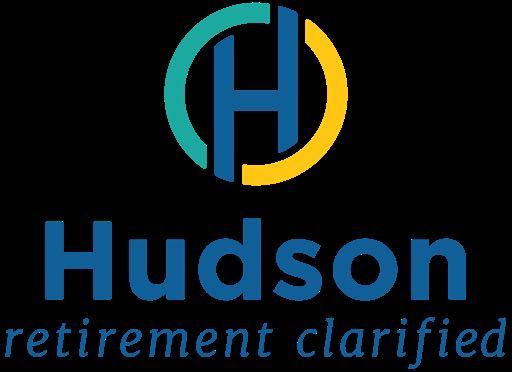For Teache
Educate yourself on:
Budget and Income Needs
Risk Score and Range of Return
Evaluating Current Accounts Asset Allocation to Designation



Tax Minimization
Health and Long Term Care Estate and Legacy Planning








i
many teachers, this is a time that they’ve looked forward to for many years. While it is fun and exciting to think about life outside of the classroom, it can also be rather unnerving.

However, now it is time to spread your wings through different endeavors, whether that’s with volunteer work, spending more time with kids and grandkids, travel, or just more time for leisure! Let’s face it, what “Retire Meant” is no longer what “Retire Means” today. Retire used to mean sitting on the front porch in a rocking chair, but today’s retiree is much more active than yesterday’s retiree. You probably have goals you want to accomplish that can now be put as the number one priority in your life. It’s quite exciting!
One of the most daunting things that retirees are faced with in retirement is managing their personal finances. At Hudson Wealth Management, we break these topics down in our B.R.E.A.T.H.E. formula: Budget and Income, Risk Score and Range of Return, Evaluation of Accounts, Asset Allocation to Asset Designation, Tax Minimization, Health Insurance, and Estate Planning. The main reason folks get a bit nervous lies in the many unknowns that exist. And for many, they may spend as much time in retirement as they did working! Seems hard to fathom, but it’s a real possibility that retirees face today.


While there will certainly be challenges as you navigate your way into retirement, there is much to look forward to as well. This guide was written with the hopes of providing you some action steps and direction on how to think about your finances as you enter retirement... so you can spend your time focused on the things that matter to you most!
Procrastinating about financial matters is a fairly common occurrence these days. Very few people enjoy going through the process of making the tough decisions that need to be made with regard to their personal finances. But, it is a very important action step to take. Reading this guide is a step in the right direction, but the next step is to start implementing the planning strategies that are necessary.
This guide was not written to give you specific advice, but rather give you some general guidance about the decisions that you are faced with as you enter retirement. We hope you enjoy this survival guide!
As an educator, you will most likely have three main sources of Pension, and Investment income. Let's take a look at some way
This a huge topic! If you are a married person, there are over 80 different combinations of how and when to take Social Security! Here are 10 Top Tips for taking Social Security:
The longer you wait, the more you will receive.
You could receive more collecting off of a current (or ex) spouse's credits.
You could be penalized for continuing to work after collecting Social Security benefits.
Up to 85% of your Social Security benefits could be taxed.
Widows and widowers are entitled to the higher earner’s full retirement benefit.
If you have not worked for 35 years, your benefits could be reduced significantly.



Verify that your earnings history is accurate on the annual statement that you receive from the SSA. Correct any inaccuracies as soon as possible.
If your spouse has a pension based on his or her life only, you may wish to consider

delaying receiving benefits as long as possible so that you get the maximum benefit for your lifetime.
Don’t confuse Medicare with Social Security. Medicare always starts at age 65 (assuming you are eligible), while your full retirement age with Social Security has a moving target.
If you are divorced and receiving benefits based on your ex-spouse’s earnings record, those benefits will stop if you remarry.
Your hire date, date of separation from service, and other factors will determine whether or not you have a pension upon retirement. However, you will have the choice of how to receive your pension:
Straight Life: This choice will give you the highest payment. However, when you pass away, your pension and insurance benefits will end for your survivors.
Survivor Option: You receive a reduced pension throughout your lifetime; however, upon your death your pension and insurances continue for the lifetime of your survivor pension beneficiary.
m
v
or 50% of your monthly pension payment, depending on the survivor option you select.
If you’re married, you and your spouse may have to sign a spousal waiver form depending on the pension payment option you choose.
You can name your spouse, child, sibling, or parent as beneficiary.
After your retirement effective date, you can’t change your payment option or your survivor pension beneficiary.

If your beneficiary dies before you, your pension increases to the Straight Life option.
Many of you have been fortunate enough to contribute to other retirement accounts along your life's journey, whether it was available to you at school or not. Deciding how to take wise distributions from these accounts is an art in retirement!
With traditional IRA's, as well as work-related defined contribution plans such as 401ks or 403bs, you will be likely penalized for withdrawals before 59 1/2.
Whether you want to or not, you will have to take money out of these accounts once you are 72.
Withdrawals from these accounts are taxed as ordinary income, and could also cause taxation on your Social Security benefits.
Roth IRAs allow you to take revenue that does not count as taxable income.
Annuities may be a great way to create a guaranteed income stream for life.
Annuities could be a great tool for creating tax-deferred growth that is not available with other retirement planning tools.
Whew! That was a lot of information! (I think your brain just grew, don't you?) If Social Security or Roth Conversions have been on your mind, here are some other great resources:

Will A Roth Conversion Work For Me?

y g
Typically speaking, the younger you are the more risk you can take. If something goes wrong, you have more time to make up for any losses. How long until you retire? The closer the date gets, usually the more conservative you should become.
Do you drive with a lead foot, roll the dice at the casinos, and like to skydive? You are probably OK with taking on a little risk in your portfolio. Are you a conservative person who fears the unknown and likes to keep a consistent schedule? You may want to risk very little. Knowing your comfort level is a key to managing risk and expectations for your investments.

If you are saving for a down payment on a house that you plan to buy within the next two to three years, you certainly don’t want to be aggressive with your investments because you are going to need that money soon. In the same regard, if you are building your nest egg for retirement, which is 10 years away, you can probably increase your risk a bit. Knowing the purpose behind the money will help you determine your time frame, which helps determine the appropriate amount of risk you should be taking.

Inevitably, markets will decline as it’s the nature of the beast. Are you the type of person that adapts easily, takes things in stride, and rolls with the punches? If so, you might be able to take on a little more risk. If you are the type of person that frets about your statements, worries about the day-to-day decline in your investments, and is anxious about what might happen if the market doesn’t recover, then you should probably ease up a bit on the risk. Sticking to a course of action is a best practice when it comes to investing. This is not to say that you should never change your plan or your risk tolerance, but if you are prone to making emotional decisions dependent on how you feel rather than sticking to something to accomplish a goal, then you may want to scale back your risk.


You've spent your whole life evaluating students! Now it is time to evaluate your retirement accounts. Many of you have some sort of account with VOYA, whether that be a 401k or 403b. You have three options with your employer plans upon retirement:



This choice could be the best one for you, but it should not be made by default. There could be some possible downsides to this decision. First of all, you could be paying higher fees than you need to. Over time, these fees can really add up! Fees are not inherently bad; however, you should get “something” for the fees you are paying. (Not just retirement target date funds with rarely any guidance). Secondly, your investment options are usually very limited. The idea behind having very few choices is to try and streamline and simplify investment choices for the “every day” Joe. This concept is not as detrimental to folks in their 30’s or 40’s, or even 50’s. However, in retirement, where funds eventually will be distributed and not added to, limited investment choices are usually not the best option. If you stay in your 401k plan, you most likely will not get individualized, constant comprehensive planning.
Many consider cashing out their 401k account to take a lump-sum distribution. This choice, on initial thought, could be quite tempting! You could do those renovations to your home that you have been putting off. You could surprise your wife with her very own “she shed,” or take that dream trip to Hawaii. You “could” do a lot of things, and the money could be gone quite quickly. However, depending on the amount in your 401k, there could be serious tax consequences. You could end up handing over “Uncle Sam” a large portion of your account by not being aware of how taxes will affect this distribution. Also, once the money is spent, it is gone. Your monthly income could seem comfortable at this point, and you may think you will not need to supplement it in the future. However, everything continues to increase in price and often times Social Security and pensions will not keep up with inflation. You could be robbing your future self of the money needed years from now!
The more common option that folks consider is to roll over their 401k into an IRA. IRA stands for Individual Retirement Account and allows its owner to continue to have their investments grow tax deferred. This option also saves participants from the problems that could occur with the first two options. In making this decision, you can be more in control of the fees that you are paying. You will have many more options as to how your money is invested. You will be more aware of the risks that you are taking. Choosing to roll over your 401k is usually the best way to get comprehensive individualized planning for the life of your retirement.
yo , i He accounts to best leverage the money you have saved for retirement:



Teaching has never been a "get rich quick" endeavor. However, if you are close to retirement after getting in the "magic 30," then you should have a decent pension awaiting you. Some teachers make more in retirement than they did when they were working! Even so, you may need a bit of a "bump" in income at some point. Setting aside an account specifically designed for this task can give you peace of mind knowing that if you ever need more income, you are prepared. A fixed indexed annuity with an income rider could be a good vehicle to provide extra revenue. There are also market-based accounts designed to provide a specific percentage of distribution each year.

We all know someone who has had to receive long-term care, whether it is their own home or in a nursing facility. For those of you who have declined traditional long term care insurance and think there is not much else to do now because it is cost-prohibitive, there are still options to protect yourself! Asset-based long term care policies can protect your estate regardless of whether you ever need long term care or not. Click below to find out What Every Teacher Needs to Know about Planning for Long Term Care
Is it important to you to leave something behind for your children, grandchildren, or charity? If that is the case, don't leave it to chance! This does not mean having to pay thousands in premium a year. Could you leverage the current cash value in a policy you already have? Could you get a single premium life insurance policy to provide a tax free benefit to your heirs?
Could you place funds into an annuity with a death benefit rider? Could you do all of this while still having some access to funds? Of course you can!
Let's not forget all the fun that awaits you in retirement! We want to make sure you have accessibility to funds for any trips or activities you want to enjoy. And, of course, emergencies arise, so let's designate some money for those unfortunate events.
I know, a lot of people don't think this is too fair, but alas it is true. Here is a rundown of how pensions are taxed for different age groups:
YOU WERE BORN BEFORE 1946: Benefits are exempt from Michigan state tax up to $50,509 if filing single, or $101,019 if married filing jointly.
IF YOU WERE BORN BETWEEN 1946 AND 1952: Benefits are exempt from Michigan state tax up to $20,000 if filing single, or $40,000 if married filing jointly.

IF YOU WERE BORN AFTER 1952: Benefits are fully taxable in Michigan.

To figure out if this applies to you, you're going to have to do a little math.
Find your provisional income. Your provisional income is equal to the combined total of 50% of your Social Security benefits, your tax-exempt interest, and the other non-Social Security items that make up your adjusted gross income.
For single people, your Social Security benefits aren't taxed if your provisional income is less than $25,000. The threshold is $32,000 if you're married and
filing a joint return.
If your provisional income is between $25,000 and $34,000 for a single filer, or from $32,000 to $44,000 for a joint filer, then up to 50% of your Social Security benefits may be taxable.

If your provisional income is more than $34,000 on a single return, or $44,000 on a joint return, up to 85% of your benefits may be taxable.

review your options each year as the plans change. Here are your options with links that spell out exactly what your coverage for 2021 looks like:


A PPO plan allows you to see any in-network doctor without a referral. Your premium will depend on your years of service. Click below to see plan details:


Your primary care physician coordinates your care through referrals to other doctors and specialists in our network with this Medicare Advantage HMO health plan. Click below to see plan details:

Priority Health offers both PPO and HMO plans. Click below for details:


The final step in planning for your retirement is making sure that your final wishes are clearly spelled out and that your family will have the easiest transition possible when you pass away. Please note that Hudson Wealth Management Representatives are not attorneys and this is not meant as legal advice. For advice related to your specific situation, please contact a qualified estate planning attorney.
Most of us have heard horror stories about estates going through probate. Probate is a legal process where your assets are distributed upon death. If you have a will in place, the court uses it as a guideline, but wills can be contested and they are not a guarantee that your wealth will be distributed as you intended. Here are four types of accounts that can skip probate if the beneficiaries are listed appropriately:
A retirement account won’t go through probate unless no (living) beneficiaries are named. Life insurance proceeds will also skip probate provided beneficiaries were named (assuming the beneficiary wasn’t your estate). If you have a payable on death (POD) or transfer on death (TOD) on your bank

Typically, assets held jointly with rights of survivorship, community property, or account, then it will generally bypass probate as well. tenancy by the entirety will also avoid probate if the joint owner is also living.


We advise you to seek the counsel of an attorney for the following end of life decisions :
Living will: A living will spells out what you would prefer in terms of your medical treatment (such as resuscitation and organ donation) when you become unable to communicate those wishes.
Power of Attorney: Appointing a financial Power of Attorney will allow a trusted agent to legally handle your financial affairs should you become incapacitated.

classroom for close to 15 years, it is hard to walk away from “teaching. That is why I haven t!
As a teacher, I provide my “students” with information and critical thinking skills so that they can make the best-educated decisions about retirement.
Every client of mine has a retirement plan that is geared towards their needs, hopes, and desires for the second half of their financial lives. Social Security and Pension Maximization, Tax and Risk Management, Medicare Solutions, Long Term Care Options, Portfolio Assessment, Wealth Management…are all aspects of retirement that need to be considered. And, of course, we have a good time doing it!
Just like you, I am passionate about seeing my students succeed. Let’s learn about what would be best for YOUR retirement together!
Just for you: A 15-minute "Straight From the Teacher" Phone Call!
Featuring:
Time to discuss any questions and concerns in each of the BREATHE Formula areas. Answers any other questions/concerns that you have. And a Bonus! Your Individual Portfolio Stress Test, showing you:
a) The fees you are paying.
b) How your current accounts would have performed in different market conditions. c) Your Portfolio Risk Score & how it aligns with your Personal Risk Score. I hope you enjoyed this Retirement Survival Guide; the next steps are up to you!
Schedule a chat with Sara


Sara Hornick is an investment advisor representative of, and securities and advisory services are offered through USA Financial Securities Corp., Member FINRA/SIPC. A registered investment advisor located at 6020 E. Fulton St., Ada, MI 49301. Hudson Agency, LLC is not affiliated with USA Financial Securities

